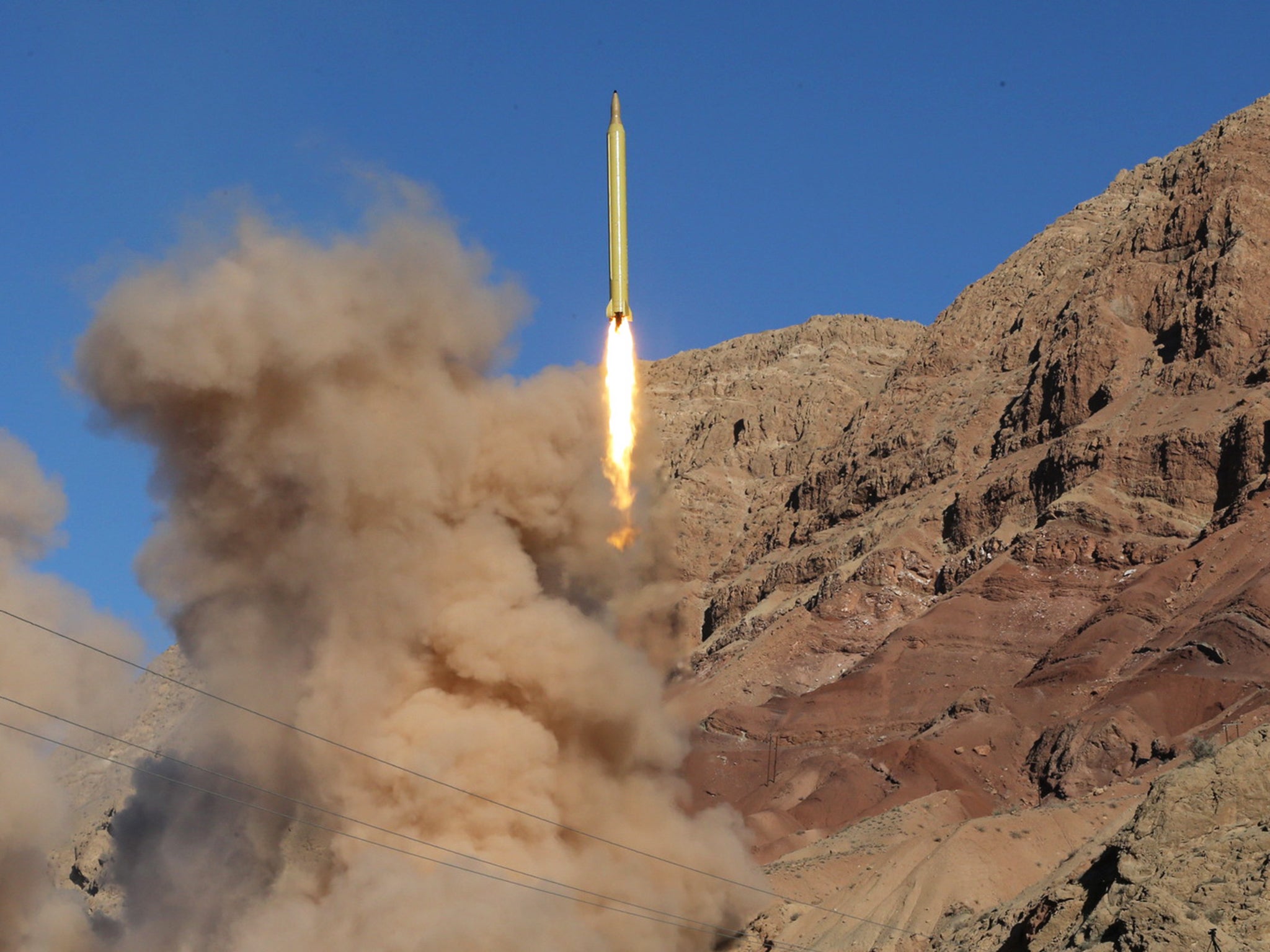Boris Johnson says 'very concerning' reports of Iran ballistic missile test to be discussed at UN Security Council
Iranian government claims tests do not violate landmark nuclear deal struck in 2015

Your support helps us to tell the story
From reproductive rights to climate change to Big Tech, The Independent is on the ground when the story is developing. Whether it's investigating the financials of Elon Musk's pro-Trump PAC or producing our latest documentary, 'The A Word', which shines a light on the American women fighting for reproductive rights, we know how important it is to parse out the facts from the messaging.
At such a critical moment in US history, we need reporters on the ground. Your donation allows us to keep sending journalists to speak to both sides of the story.
The Independent is trusted by Americans across the entire political spectrum. And unlike many other quality news outlets, we choose not to lock Americans out of our reporting and analysis with paywalls. We believe quality journalism should be available to everyone, paid for by those who can afford it.
Your support makes all the difference.A reported ballistic missile test by Iran is to be discussed by the UN Security Council amid concern the move violates a resolution limiting the country's capability.
Boris Johnson, the Foreign Secretary, said a meeting would be held on the "very concerning" issue later on Tuesday, adding that it would be "inconsistent with UN resolution".
Iran's foreign minister refused to confirm the test, saying the country's was not part of the landmark nuclear deal struck with world powers in 2015.
"As all signatories to the nuclear deal have announced, the missile issue is not a part of it," Mohammad Javad Zarif said.
He added that Iran's missile were “not designed for the capability of carrying a nuclear warhead...our ballistic missile was designed to carry a normal warhead in the field of legitimate defence.”
The White House said it was studying details of an apparent Iranian ballistic missile test, which ended with a “failed” according to American officials.
Little over a week after the inauguration of Donald Trump, who vocally opposed the nuclear deal, Mr Zarif said the issue should not be used as “an excuse for some political games by the new US administration. The Iranian people would never allow their defence to be subject to the permission of others.”
The Iranian military has long boasted of having missiles that can travel more than 1,200 placing much of the Middle East including its enemy Israel in range, but claims they are merely a deterrent.
Its latest test provoked anger among Israeli politicians, with Prime Minister Benjamin Netanyahu saying he planned to discuss Iran in his upcoming meeting with Mr Trump in Washington.
“I intend to raise with him the renewal of sanctions against Iran, sanctions against the ballistic missiles and additional sanctions against terror and also to take care of this failed nuclear agreement,” he said.
In May 2016, Iran's defence minister Hossein Dehghan issued a vague denial after a media outlet close to the Revolutionary Guard reported that the country had test-fired a ballistic missile with a 1,200 mile range.
He said that no missile had been tested “with the range that was published in the media,” but he did not deny that a ballistic missile had been fired.
In March, Iran test-fired two ballistic missiles - one emblazoned with the phrase “Israel must be wiped out” in Hebrew - sparking international outcry.
A Security Council resolution adopted after Iran reached its nuclear deal with world powers in 2015 calls on the country not to take any actions related to ballistic missiles that are “designed to be capable of delivering nuclear weapons.”
Mr Zarif contends that its ballistic missile launches are not banned under UN Security Council Resolution 2231 because the prohibition only applies to weapons specifically designed to carry nuclear warheads.
But the US, which maintains its own set of sanctions against Iran, has argued that previous launches are in defiance of the ban.
The EU called on Tehran to “refrain from activities which deepen mistrust", with foreign policy spokesperson Nabila Massrali saying that a ballistic missile test would not constitute a violation of the nuclear deal but was “inconsistent” with Resolution 2231.
“Whether it constitutes a violation is for the Security Council to determine,” she added.
Additional reporting by AP
Join our commenting forum
Join thought-provoking conversations, follow other Independent readers and see their replies
Comments